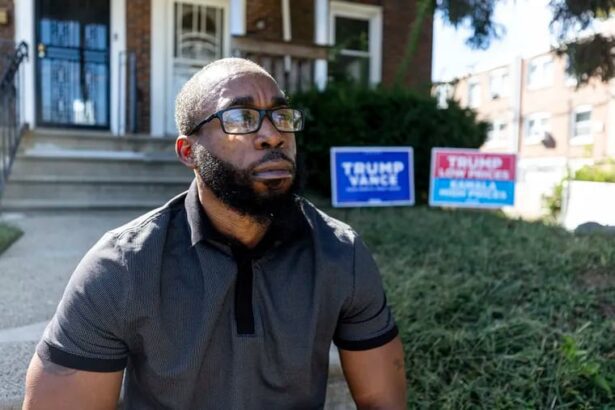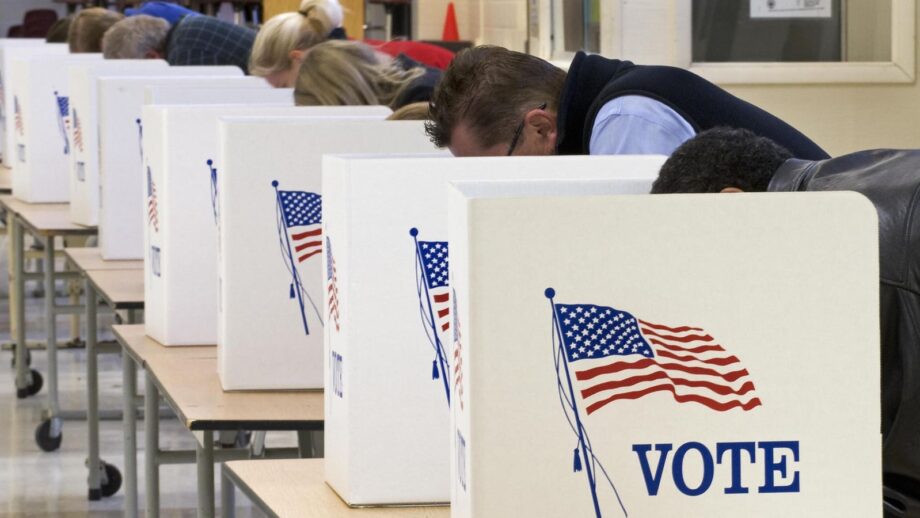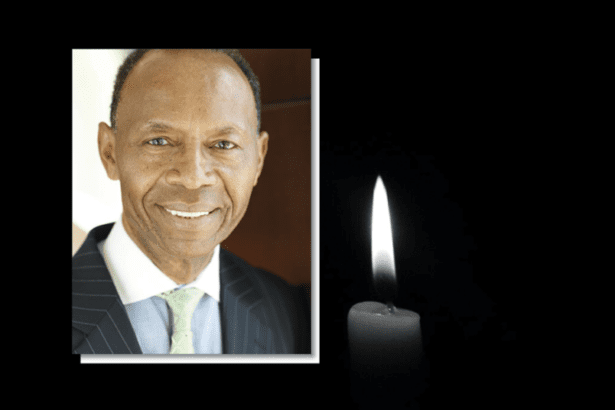Voters cast their ballots on Election Day. AFP Photo/Paul J. Richards (Photo credit should read … [+]
As we approach the 2024 congressional elections, the stakes for Black America have never been more critical. These elections will decide the composition of a Congress that will either uphold or undermine the hard-fought progress we’ve made in civil rights, economic equality, and social justice. In an era characterized by intense political polarization and growing attacks on fundamental rights, the outcomes of these elections could significantly shape the future trajectory of Black communities across the United States.
We find ourselves in a time of profound social and political upheaval. The 2020s have been a decade marked by stark contrasts—on one hand, historic protests for racial justice, and on the other, a resurgence of white supremacist ideologies. We’ve seen groundbreaking advances in Black political representation, yet we also face concerted efforts to roll back the rights of marginalized groups. As our nation grapples with these conflicting forces, the importance of electing representatives committed to advancing the interests of Black communities cannot be overstated.
Protecting the Black Vote
One of the most immediate and pressing issues at stake is the future of voting rights. In recent years, there has been a concerted effort to restrict access to the ballot box, disproportionately affecting Black voters. From gerrymandering and stringent voter ID laws to the purging of voter rolls and the reduction of polling places in predominantly Black neighborhoods, these measures threaten to disenfranchise millions of Black Americans.
The Voting Rights Act of 1965, once a robust safeguard against discriminatory practices, has been significantly weakened by a series of Supreme Court decisions. Restoring and expanding voting rights protections must be a top priority for the next Congress. Black voters must demand that candidates commit to passing comprehensive voting rights legislation that includes provisions to prevent gerrymandering, restore federal oversight of elections in states with histories of discrimination, and expand access to early and mail-in voting.
Economic Inequality: The Persistent Racial Wealth Gap
But voting rights are just one part of the equation. Economic inequality remains a persistent challenge that demands our attention. The racial wealth gap, driven by centuries of systemic racism and exclusion from economic opportunities, continues to widen. The 2024 congressional elections present an opportunity to push for policies that can help close this gap and build Black wealth. One of the most effective ways to address economic inequality is through targeted investments in Black-owned businesses and communities. The next Congress should prioritize funding for Community Development Financial Institutions (CDFIs) and other organizations that provide capital to Black entrepreneurs. Additionally, expanding access to affordable housing, increasing the minimum wage, and enacting policies that promote equitable access to education and job training are essential steps toward economic justice.
However, we cannot separate the economic dimension from the broader fight for social justice. The Black Lives Matter movement brought national attention to the pervasive problem of police brutality and the broader issues of systemic racism within the criminal justice system. Despite some progress, there is still much work to be done to ensure that Black Americans are treated equitably by law enforcement and the courts. Candidates running for Congress must be held accountable for their positions on criminal justice reform. This includes supporting the end of qualified immunity for police officers, investing in community-based alternatives to policing, and addressing the over-incarceration of Black individuals through sentencing reform and the decriminalization of non-violent offenses.
Breaking the Cycle of Poverty and Marginalization
Addressing social justice requires more than just reforming the criminal justice system; it demands a comprehensive approach that includes economic justice as an integral part. The deep-rooted inequalities in wealth and opportunity that persist in Black communities are both a cause and a consequence of social injustice. The over-policing of Black neighborhoods and the high rates of incarceration among Black men are directly linked to the economic disenfranchisement of these communities. This cycle of poverty, criminalization, and marginalization must be broken.
To achieve meaningful change, the next Congress should focus on policies that dismantle the structural barriers perpetuating inequality. This could include efforts to reform the tax code to make it more progressive, ensuring that the wealthiest Americans and corporations pay their fair share. Additionally, investing in infrastructure and community development in historically underserved areas can create jobs, stimulate local economies, and provide long-term stability for Black families.
Engaging the Black Electorate: The Power of the Vote
Given the stakes of the 2024 congressional elections, it is crucial that Black voters engage fully in the electoral process. This means not only voting but also holding candidates accountable for their positions on the issues that matter most to Black communities. We must demand clear and specific policy commitments from candidates on voting rights, economic equity, and criminal justice reform. Moreover, Black communities should leverage their collective power to support candidates with a proven track record of fighting for justice and equality. This may involve organizing at the grassroots level, contributing to campaigns, and engaging in public advocacy to ensure that the voices of Black Americans are heard loud and clear.
The 2024 congressional elections represent a critical turning point for Black America. The outcomes will shape the legislative agenda for years to come and determine whether the progress made toward racial justice and equality will continue or be rolled back. By engaging in the electoral process and demanding accountability from candidates, Black voters have the power to influence the nation’s direction and secure a brighter future for all Americans.
No better words capture the moment in which we live than Dr. Martin Luther King Jr.,“We are now faced with the fact that tomorrow is today. We are confronted with the Fierce Urgency of Now!”




